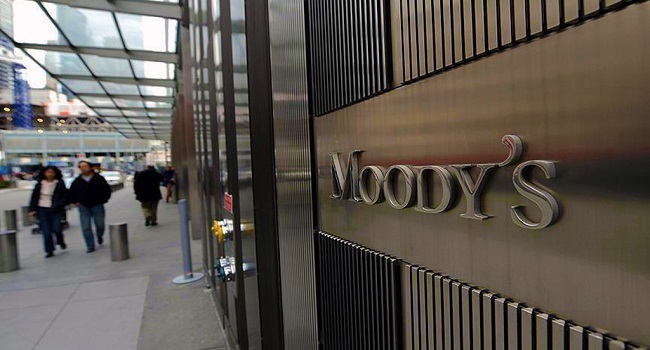Business
Moody to cuts ratings of nine Nigerian banks over forex crises

Moody’s Investors Service, one of the leading credit rating agencies, has announced that it has placed on review for downgrading the long-term deposit ratings, as well as a long-term issuer and senior unsecured debt ratings, where applicable, of nine Nigerian lenders.
This was disclosed over the weekend by the agency while citing the impact of the lingering foreign exchange crisis in the country on Deposit Money Banks’ (DMBs) operational ability to meet their foreign currency obligations as well as their capitalisation and asset quality,
The affected banks are: Access Bank Plc, Zenith Bank Plc, First Bank of Nigeria Limited, United Bank for Africa Plc, Guaranty Trust Bank Limited, Union Bank of Nigeria plc, Fidelity Bank plc, FCMB Limited and Sterling Bank Plc.
A statement issued by the agency said: “Constraints on domestic oil production, capital outflows, and the increased cost of the country’s imported refined petroleum products, coupled with US dollar strengthening, have together weighed on the availability of foreign currency liquidity in the country despite higher oil prices and material discrepancies between official and parallel market exchange rates persist in the country.
READ ALSO:Nigerian companies losing foreign investment to 2023 election, forex scarcity
“Nigeria’s foreign exchange reserves have declined to $38 billion as of September 2022 from $40 billion as of January 2022 despite higher oil prices, and we understand that the central bank, which is the main provider of foreign exchange in the country, has consequently scaled down and become increasingly selective with its foreign currency allocations.”
It further stated: “The review for downgrade on the long-term ratings of Nigerian banks also captures the risk that a potential material depreciation in the country’s foreign exchange rate could pose to the banks’ capitalisation and asset quality. “On average, around 40% of loans extended by Moody’s-rated Nigerian banks as of December 2021 were denominated in foreign currencies, predominantly dollars.
Some of these borrowers are vulnerable to a further depreciation of the naira because they do not earn foreign-currency income, and a weaker naira would harm their repayment capacity. The banks’ relatively high level of dollarisation also constrains the central bank’s capacity to act as a lender of last resort in case of need.”
The agency further explained that its rating review will focus on assessing the banks’ operational ability to meet their foreign currency obligations,
It added, “The rating review will take into account the expected evolution in foreign exchange reserves, as well as the various tools at the banks’ disposal to conduct foreign currency payments amid reduced availability of US dollars.”
Join the conversation
Support Ripples Nigeria, hold up solutions journalism
Balanced, fearless journalism driven by data comes at huge financial costs.
As a media platform, we hold leadership accountable and will not trade the right to press freedom and free speech for a piece of cake.
If you like what we do, and are ready to uphold solutions journalism, kindly donate to the Ripples Nigeria cause.
Your support would help to ensure that citizens and institutions continue to have free access to credible and reliable information for societal development.






















